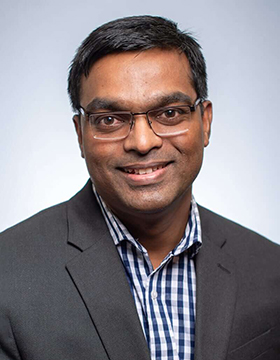
Mohammad Haider
Associate Professor of Electrical and Computer Engineering
Mohammad Rafiqul Haider received his B.S. and M.S. degrees from Bangladesh University of Engineering and Technology (BUET), the top ranked engineering university in Bangladesh. He received his Ph.D. in Electrical and Computer Engineering from the University of Tennessee at Knoxville in 2008. He is currently an Associate Professor in UAB’s Department of Electrical and Computer Engineering. He also served at Sonoma State University from 2009 to 2010.
Haider’s research group is exploring low-cost inkjet-printed sensors and systems on flexible substrate, and biologically inspired ultra-low-power circuit and system architectures for energy-efficient integrated systems. His research interests include low-power analog and RF circuit design for sensor applications, bioamplifiers, neuromorphic architecture, energy-efficient biomedical telemetry, low-power signal processing, injection-locked transmitter for wireless sensor network and wireless body area network, inductive power link for wireless power transfer, spectrum-efficient ultra-wide-band wireless telemetry, etc.
He is the author and co-author of more than 100 articles in international journals and conference proceedings. Haider has served as an associate editor of Microelectronics Journal, academic editor of Journal of Sensors, and editorial board member of Journal of Low Power Electronics and Applications. He has also served as a reviewer for several internal journals and as a technical program committee member for the 5th IEEE International Symposium on Smart Electronic Systems, 32nd IEEE International System-on-Chip Conference (SOCC) 2019, and 61st IEEE International Midwest Symposium on Circuits and Systems (MWSCAS, 2018). Haider co-authored a book entitled Sensors and Low-Power Signal Processing (ISBN: 978-0-387-79391-7), which is available from Springer since January 2010. His works have been supported by National Science Foundation, NCHRP, and local agencies.

